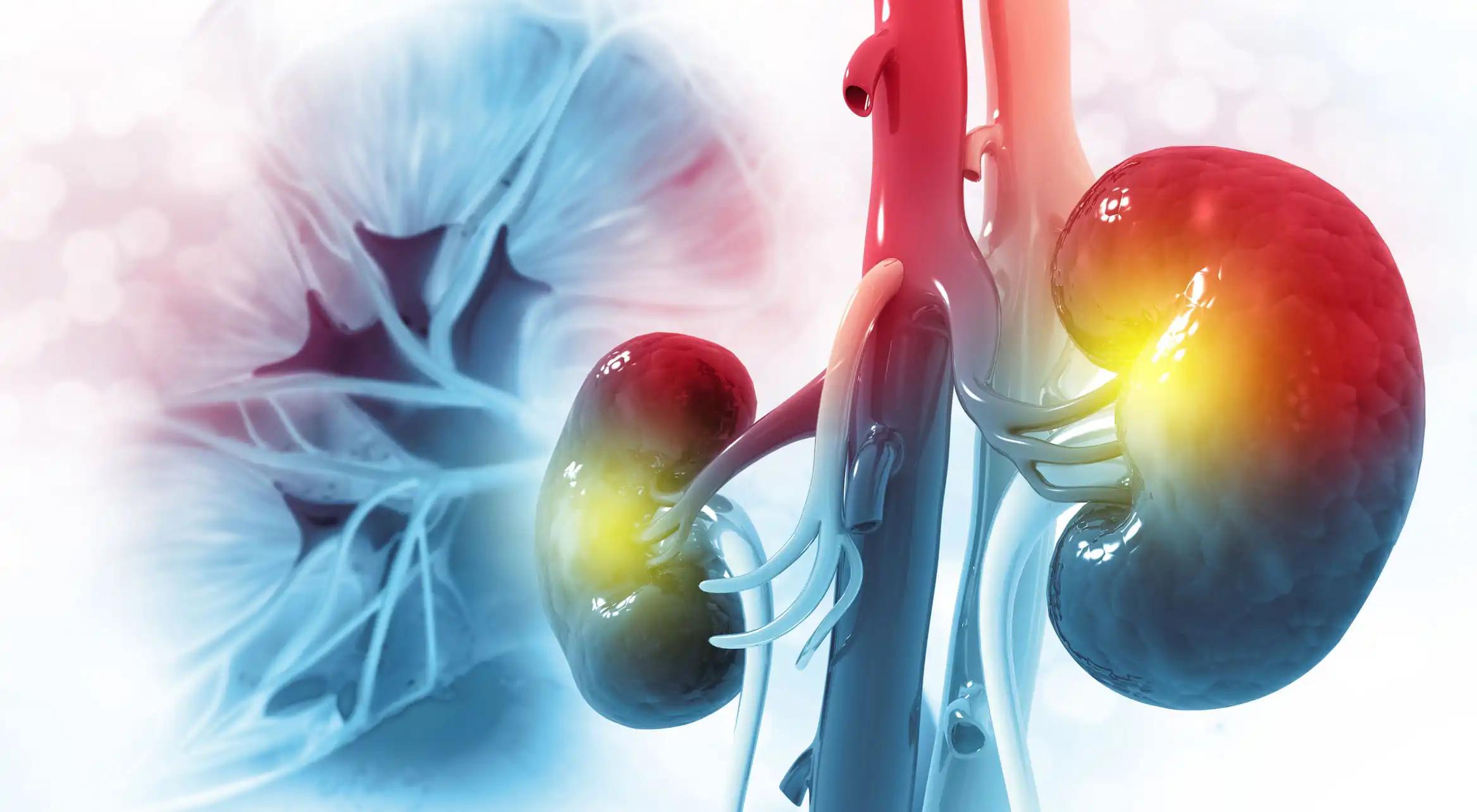KEY TAKEAWAYS
- The study aimed to assess the efficacy of various systemic treatments in metastatic pts with ASPSCR1-TFE3 rRCC.
- The primary outcomes of the study were PFS, OS, and ORR.
- ICI-based combination therapy was effective in ASPSCR1-TFE3 rRCC; further investigative research is warranted.
TFE3-rearranged renal cell carcinoma (TFE3-rRCC) is a rare and highly heterogeneous subtype of renal cell carcinoma (RCC), with largely unspecified treatment strategies.
Junjie Zhao and the team aimed to assess and comparatively analyze the efficacy of various systemic treatments and explore the linked molecular correlates.
About 38 patients (pts) with metastatic TFE3-rRCC were enrolled in the study. The primary outcomes measured were progression-free survival (PFS), overall survival (OS), objective response rate (ORR), and disease control rate. Additionally, RNA sequencing was conducted on 32 tumor samples to investigate molecular correlates.
Results indicated that pts receiving first-line (L1) immune checkpoint inhibitor (ICI) based combination therapy achieved longer PFS vs those treated without ICI (median PFS: 11.5 vs. 5.1 months, P=0.098). By stratification of the fusion partners, the predominant superior efficacy of L1 ICI-based combination therapy was observed in pts with ASPSCR1-TFE3 rRCC (median PFS: not reached vs. 6.5 months, P=0.01; ORR: 67.5% vs. 10.0%, P=0.019), with almost invisible effect in non-ASPSCR1-TFE3 rRCC.
Further, transcriptomic data revealed enrichment of extracellular matrix (ECM) and collagen-related signaling in ASPSCR1-TFE3 rRCC, which may interfere with the potential efficacy of anti-angiogenic monotherapy. Conversely, angiogenesis and immune activities were exclusively enriched in ASPSCR1-TFE3 rRCC, suggesting better clinical outcomes with ICI plus tyrosine kinase inhibitor combination therapy.
The study concluded that representing the largest cohort to compare treatment outcomes and investigate molecular correlates of metastatic TFE3-rRCC based on fusion partner stratification, ICI-based combination therapy could serve as an effective L1 treatment option for metastatic pts with ASPSCR1-TFE3 rRCC. Further investigations were suggested to explore the molecular mechanisms in other fusion subtypes to develop targeted treatments.
This work was supported by the Natural Science Foundation of China , China Postdoctoral Science Foundation, Research Foundation for the Postdoctoral Program of Sichuan University, 1.3.5 project for disciplines of excellence, West China Hospital, Sichuan University, Science and Technology Support Program of Sichuan Province, the Natural Science Foundation of Sichuan Province, Post-Doctor Research Project, West China Hospital, Sichuan University, China Primary Health Care Foundation, Urological Oncology Research.
Source: https://pubmed.ncbi.nlm.nih.gov/38926757/
Zhao J, Tang Y, Hu X, et al. (2024). “Patients with ASPSCR1-TFE3 fusion achieve better response to ICI based combination therapy among TFE3-rearranged renal cell carcinoma.” Mol Cancer. 2024 Jun 26;23(1):132. doi: 10.1186/s12943-024-02044-5. PMID: 38926757.



